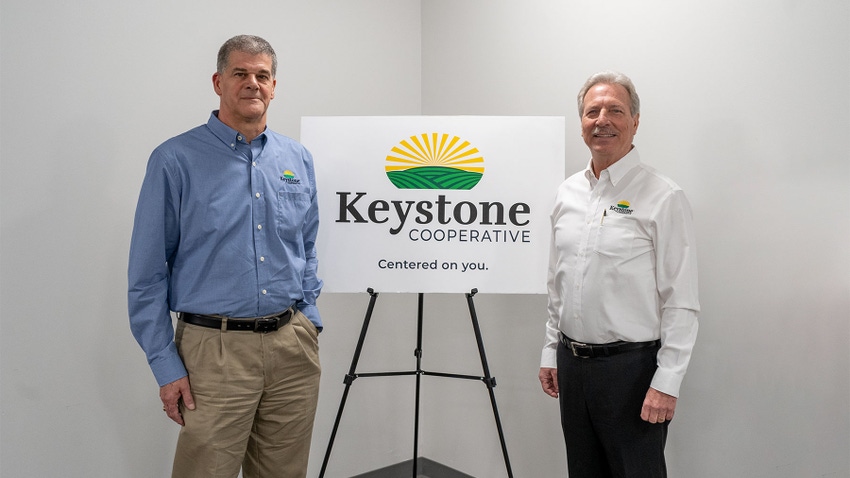
If you do business with Ceres Solutions or Co-Alliance, two large farmer-owned cooperatives, as of March 1, you will do business with Keystone Cooperative instead. Memberships of the two separate co-ops overwhelmingly approved the merger on Jan. 9, forming a cooperative with annual revenue around $3.1 billion. Keystone Cooperative will serve farmers and rural customers over large parts of Indiana, Michigan and western Ohio.
Kevin Still, president and CEO of Co-Alliance, becomes president and CEO of Keystone Cooperative. Jeff Troike, CEO of Ceres Solutions, will serve as executive vice president, alongside Scott Logue, vice president of Co-Alliance and former CEO of Heartland Cooperative before it merged with Co-Alliance a few years ago. The company will be based out of the former Co-Alliance headquarters in Indianapolis.
Here are excerpts from an interview with the two longtime co-op leaders:
Why did this merger occur?
Still: Jeff and I have talked about this on and off for 10 years. A feasibility study indicated that the merger was workable, and that starting in the third year, we should realize an extra $25 million per year in returns. So, it seemed like the right move.
Troike: Consolidation is part of agriculture today, as in many other industries. It’s not necessarily a bad thing. We will be able to achieve efficiencies over time, and also increase buying power.
The new company will have 20,000 farmer-member-owners, 1,700 employees and 195 locations. Our business will remain diversified into agronomy, energy, grain and feed, and swine operations. Neither of our two co-ops had any long-term debt at the time of the merger.
Will farmers still have a say in the business?
Still: Absolutely. The overall picture will show five districts across our marketing area. Four farmer-directors will be elected from each district. Once these directors are elected, they will choose their own slate of officers. The board of directors of Keystone Cooperative will hire the CEO and report directly to the members. Like our two separate co-ops now, it will be controlled by our membership.
How else can farmers get involved?
Troike: We will also have advisory boards in each of our five districts. Each advisory board will be made up of farmer-members in that district. We want to be sure our members have a say in how we operate and do business.
How will the merger impact employees?
Still: No reduction in force is planned. Each of the two co-ops separately had a number of openings before the merger. As attrition occurs over time, we will make smart decisions about the workforce.
Troike: We believe it is an opportunity for our employees as well as our farmer-member-owners. Going forward, there will be more chances for promotion than there might have been otherwise.
Have your two co-ops worked together before?
Still: Yes. Endeavor Ag and Energy — which has agronomy outlets, provides propane and also is in the feed business in central Michigan — is a joint venture operated by Ceres Solutions and Co-Alliance.
Troike: We also both have some joint business deals. For example, Ceres Solutions is an investor in United Prairie in Illinois. Those businesses and relationships will not be affected by this merger.
About the Author(s)
You May Also Like




